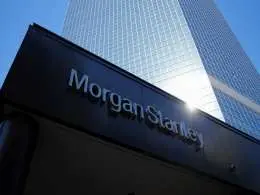The hospitality industry seems unfazed by the central government’s advisory on the service charge levied by restaurants, with many chains likely to increase prices to compensate for any potential loss of margins.
The National Restaurants Association of India (NRAI), an industry lobby group, has even objected to the decision and maintained that restaurant owners can continue levying charges.
“There is a Supreme Court ruling that allows restaurants to levy service charges. So those restaurants who are charging can continue to do so,†Riyaaz Amlani, president, NRAI, told News Corp VCCircle.
Amlani, who is also CEO of Impresario Entertainment & Hospitality that runs restaurant chains Social and Smoke House Deli, said the move won’t affect his company’s margins and the chains will continue to levy 10% service charge.
Industry observers say restaurant operators’ unease with the government move can mainly be attributed to three reasons.
First, many restaurant owners didn’t distribute the money collected through service charges to employees.
“They (restaurant owners) keep it with themselves to increase their personal profit. Even if they do (pass it on to employees), they claim it as part of employee incentives,†said Tarun Khanna, partner at private equity firm CX Partners.
Therefore, removing service charge from bills would mean a dent in the pockets of owners.
Second, restaurant owners also prune prices of some food items and compensate it through additional charges. “It's usually 10% and is above the food bill. If restaurants increase prices to include this, people might think it's beyond their budget,†Khanna said.
Third, food service providers often levy discriminatory charges, which may range between 20% and 30%, to minimise their tax outgo. “They apparently show the bills in such a way that they need to pay less tax,†said Khanna. He warned that if the advisory becomes mandatory, restaurant operators may hike prices to maintain profitability.
However, restaurants may not want to take such risk because the ban on high-value notes by the Centre in November has hit discretionary spending and the situation is unlikely to improve until the cash crunch eases.
Several dining chains are already going slow on expansion after a decline in discretionary spending over the past couple of years put pressure on same-store sales and margins, pulling some of them into the red and prompting many to close loss-making outlets.
However, the move to remove service charge will have little impact on quick-service restaurant (QSR) chains.
“The move affects fine-dining more than QSR, where anyway the incidence of service charges are low,†said Abhishek Sharman, founder and managing director, Carpediem Capital Partners.
Khanna seconds this view, saying the worst-affected would be five-star hotel chains and fine-dining brands, which add a big amount to the bills of clients.
Sharman also pointed out that the move may standardise the quality of services provided to clients in terms of food, cleanliness and hospitality. “The advisory may help differentiate good service versus bad, though it may impact restaurant sales at the margin,†he added.
Like this report? Sign up for our daily newsletter to get our top reports.







